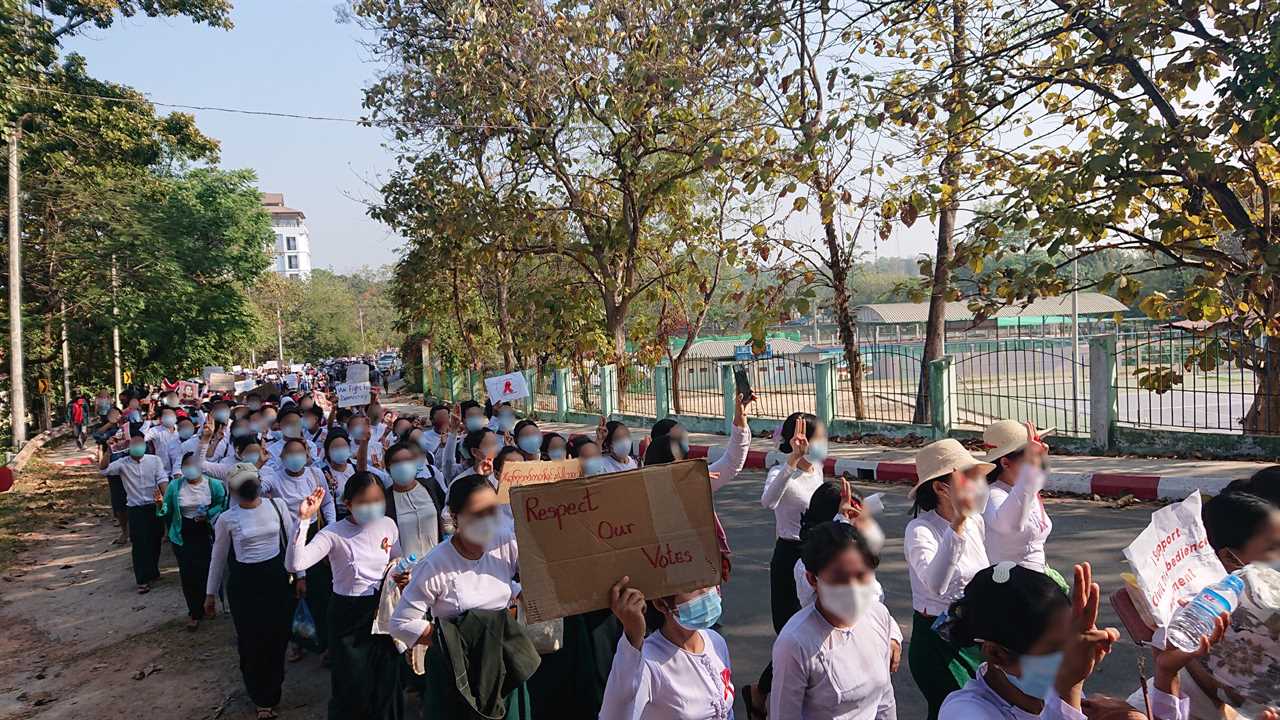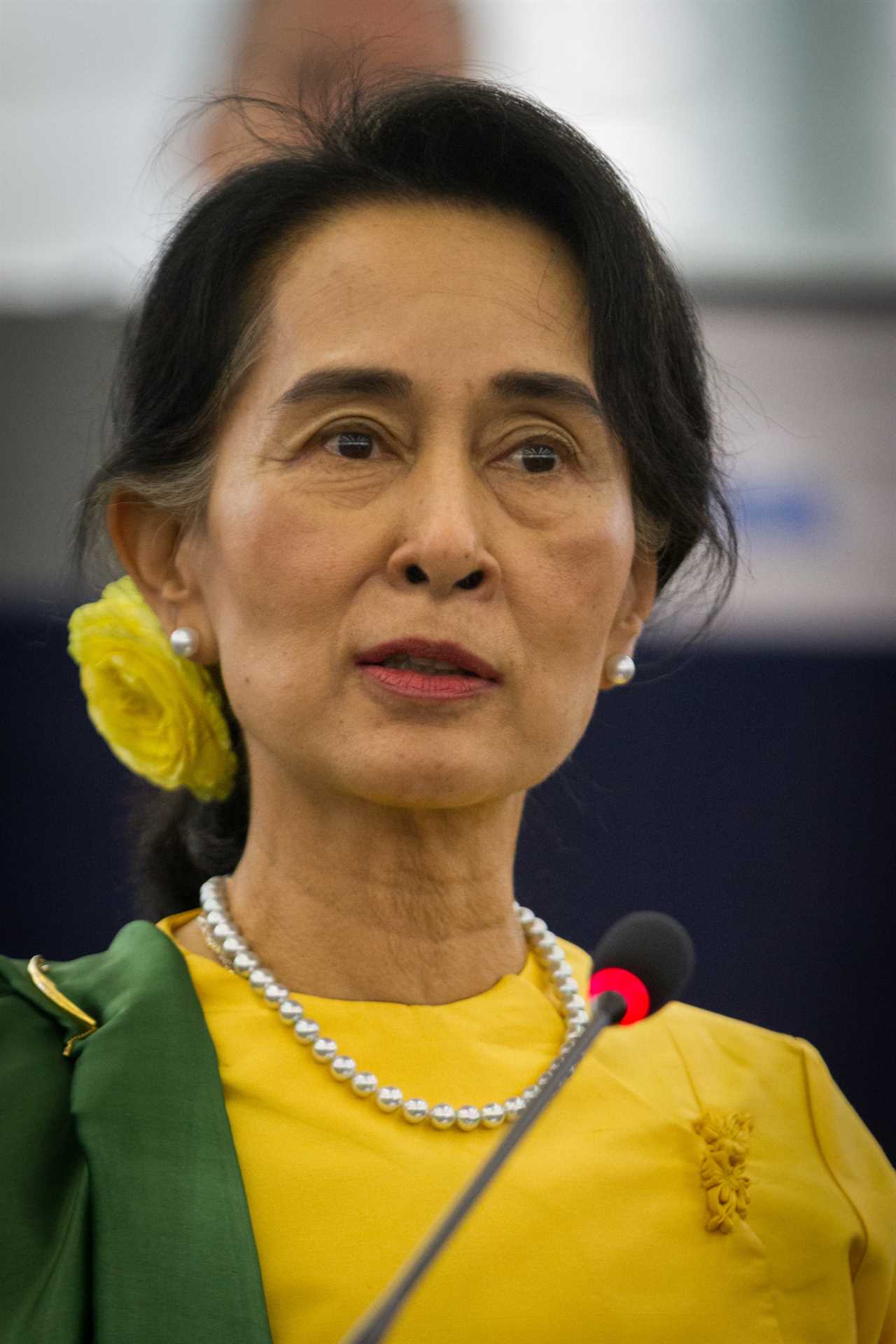Renowned writer William Gaddis said, “Power doesn’t corrupt people, people corrupt power.”
Myanmar (Burma) and its citizens have long suffered the effects of an unstable political environment triggered by the desire of the military to take control of the country. The coup that took place in February and that put Myanmar in a year-long state of emergency has only succeeded in fuelling the turmoil. Despite this and the fact that the NLD party, led by Aung San Suu Kyi, won the last general election by a landslide, the military now has control with commander-in-chief Min Aung Hlaing at the helm.
Power is the crux of the current situation in Myanmar, as journalist and panelist Naomi Gingold noted in the latest discussion by virtual think tank Global Stratview: “Myanmar (Burma) Coup: Reasons, Repercussions, the Chinese links and Options for the West.”
Part of ensuring this military power is maintained is the shutdown of communication including via the Internet and mobile data. Local and international journalists and media groups have had their licences revoked but they have kept reporting, helping the world stay informed. Gingold underlined people can still get and spread information: “There are secret groups and encrypted apps that are keeping people informed. They send text messages with ‘Hey, this is what you need to know.’” Gingold went on to say that misinformation that is fuelled in part by the military, on Facebook, for instance, continues, but “there is a growing interest by young people to become discerning newsreaders and get the actual facts.”
As the established and international media, as well social media platforms, continue to find ways to report on the country’s activities, there is no doubt that the situation is impacting the mental state of the Burmese. Trauma is triggered by the protests and clashes with police forces, as well as encountering brunt force and violence up close.
Paris Huang, White House Correspondent for Voice of America (Chinese Branch), who moderated the discussion, asked if the Burmese are ready to fight for democracy or the lifestyle they desire or are they frightened and have chosen to retreat until things calm down.
Gingold said two things are happening. Some people are going along with the façade because it helps them keep their businesses operating and some are actively producing and distributing newspapers or running pirate radio stations.
“It doesn’t mean they’ve given up by any means or that they don’t care,” she pointed out, “there are still people who are very involved. After the coup, however, a lot shattered like strategies and what people were doing. A lot has been driven underground. Obviously, the military’s extreme violence has also stopped the huge protests we were seeing at the beginning, which were in a carnival-like atmosphere.” But people are still finding creative ways to protest despite the junta-imposed curfews and restrictions to gatherings, including teachers, government workers, lawyers and students. “The civil disobedience movement is still going strong, and I don’t think people have been cowed into submission. I think you might not see it as readily on the surface, but it’s very much there,” she said.
Impact of sanctions
Sanctions can be imposed by the international community, as has happened in the past, but the question is if sanctions would have any significant impact. Veteran journalist Rahul Mahajan, who reminded the audience that Myanmar faced wide-ranging sanctions from the West in 2003, the country diversified products and began trading with South Korea and Japan. “I don’t think they will have any effect on Myanmar, whose largest trading partner is China,” Mahajan said. “China, India or the Association of Southeast Asian Nations [ASEAN] have not put any sanctions. These are the immediate trade partners that have taken a strong position on the coup. This also reflects the kind of response that Myanmar is getting from countries, So, there is no effect from other countries.”
If we consider Japan, which has considerable influence in Myanmar and provides the most development assistance to that country, comprising $140 million in aid and $62 million in technical assistance, the question remains if Japan has leverage. The Japanese Foreign Ministry recently threatened to freeze development assistance if things did not change. Things are still up in the air. It should be noted though businesses are making decisions including Japanese brewery Kirin, which withdrew from the Burmese market, saying it did not want to support a military dictatorship. “Commercially, there’s quite a lot that could be done,” Gingold said.
Sino side of things
Does this give China an even more secure ‘in’? Things are not so cut and dried. Some Chinese investments are already at risk. A military coup cuts off economic possibilities and potentially drives businesses to pull out of a volatile market. However, China and Myanmar have active military relations and, despite any issues that have emerged, their relations are good overall.
“These two countries are vital to each other’s security and strategies,” explained M Tu Aung, General Secretary, Nationalities’ Alliance of Burma, who led a protest at the Chinese embassy in Washington D.C., last November. “The 200-kilometer border with China’s Yunnan province is so deeply influenced by China’s economic, military and political support that this consequently weakens international sanctions.” China is Myanmar’s largest supplier of military weapons, exporting 60 percent of that just in the period 2014–18 alone. “Despite 20 years of Western sanctions, the cooperation and relationship between both countries has strengthened over the years,” Aung noted.
China also has denied any previous knowledge of the coup that took place a few months ago. China, along with Russia, vetoed the UN Security Council’s statement condemning the military move as well, saying the international community should not raise any tension.
“China is a friendly neighbor and has good relations with Suu Kyi, the NLD and the military,” Aung said. “Numerous reports suggest the Chinese have helped build a [Internet] firewall to protect the military. China though said the plane that flew into Myanmar that day did not carry technical personnel, but rather it was seafood.”
Indian influence … or not
India, which borders Myanmar in the northeast, is cautious. “We need to see the situation through the lens of India’s relationship with China,” Rahul told the audience. “Letting its neighbour fall completely under the influence of Beijing would result in a major security concern for India. We and everyone could understand that India has a very long border with Myanmar — a large part of that border is very porous — and we have faced insurgency from that border in the past. There were allegations that China was supporting that insurgence. So, it is a very difficult situation with India.”
Rahul pointed out that India also has a longstanding relationship with the Burmese military, which has supported India’s moves to fight insurgence groups in the past. “So, India has a special place for Myanmar, its military and people,” he remarked. India has issued statements asking for democracy to be reinstated but it has not criticized the junta. Rahul noted that India must consider everything when it comes to Myanmar. “Wrong steps could trigger problems. India is already facing threats on its northern border with China as well as the border with Pakistan, which has a close alliance with China. It will not risk destabilization with the eastern front,” Rahul said. “I think India will have a policy of non-interference regarding Myanmar affairs.”

Burmese tachers protesting the military coup in Hpa-An, the capital city of Kayin State in February 2021. WIKIPEDIA
What’s next?
Even though the Chinese government did not respond to the November protest in D.C., Aung said they will continue to put pressure on China: “We denounce the killing of innocent people, especially children and pregnant women. Ethnic minority civilians have been killed and many have been displaced. There are also calls for the immediate release of those who are being unlawfully detained. We are asking the international community to stop them; we are asking for a peaceful transition in Myanmar. We will continue to ask the U.S. and international communities.”
Gingold added that China is walking a fine line and does not want to publicly condemn the junta leaders. “We’ve seen the rise of a lot of anti-China sentiment from the public and there were Chinese factories in Yangong burned. Taiwanese companies are saying that flags should be placed to show they are not Chinese.”
The bottom line is that China has both strategic and commercial interests to ensure a good relationship with Myanmar because it can have access to a land route in addition to a sea route. “Let’s say there’s a blockade in the sea route in the future, they have an alternative route to Southeast Asia, which is important for China,” Rahul said. “China needs to be in the ‘good books’ with Myanmar to contain India and any growing influence from that end. China’s trade with Burma is 10 times more than what India has with Burma. China has big infrastructure projects like dams and roads. India is, of course, there and investing, but its basic concern is security.” Insurgency and those taking refuge in Myanmar put a dent in Indian-Burmese ties.
The future of Myanmar and Suu Kyi
According to Gingold, the military’s move to try and dissolve the NLD is history repeating itself after 1988. “The NLD won a landslide election then, making the party illegal. But it doesn’t spell the end for the NLD now. Going forward there is a civilian government, the NUG formed officially in April with elected lawmakers coming mostly from the NLD and a lot of ethnic minority groups. They’ve taken positive steps, they’re in conversation with different governments and they have created their own army. It’s giving people hope and giving something to rest their hopes on,” she said.

Aung San Suu Kyi
“As for Suu Kyi, she was playing politics in her country. It doesn’t excuse her for not condemning the Rohingya genocide. But there are other factors at play. The NLD is no longer just about her. There’s a generation of young people who became political activists overnight and, while there’s a lot still tied to her, they are less tied to her. The Western world has different options.”
Time will tell how those options will impact Myanmar and its regional neighbors as well as the rest of the world.
Did you miss our previous article...
https://badpoliticians.com/uk-politics/hinkley-points-role-in-the-uks-energy-mix-in-the-context-brexit
 UK PoliticsWorld PoliticsVideosPrivacy PolicyTerms And Conditions
UK PoliticsWorld PoliticsVideosPrivacy PolicyTerms And Conditions
